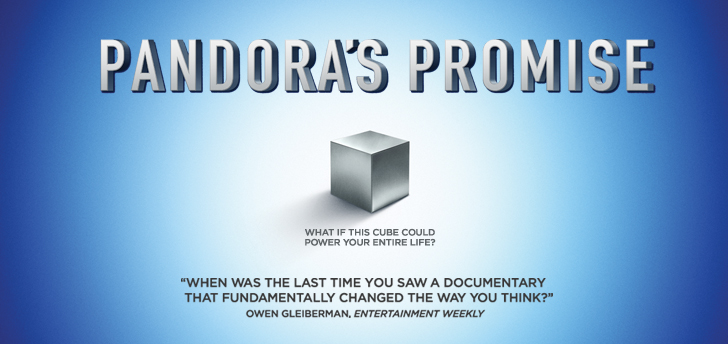I cannot say I have ever had a firm position on nuclear power—I have worked for organizations that fervently decry the dangers of the technology but have also read persuasive arguments that the technology is amongst the safest and least environmentally damaging available. Having spent a disproportionate amount of time within the environmental left, I certainly have had more exposure to anti-nuclear arguments.
But my recent introduction to the Ecomodernist, pro-technology, pro-nuclear camp has lead me to reconsider nuclear energy. My exploration of the issue lead me to Pandora's Promise, a documentary film that convincingly argues that the risks poised by nuclear power have been overstated and its benefits under-appreciated. A common critique of the environmental movement is that it exaggerates the damages caused by technology and industry while overlooking its redeeming qualities. The film makes a strong case that this critique is particularly valid with regard to nuclear energy, as it investigates the specious claims of anti-nuclear advocates such as Helen Caldicott and Amory Lovins. Perhaps the most compelling statistic cited within the film is the number of deaths caused per TWh for each energy source.
I had no clue about these numbers until I watched Pandora's Promise.
As you can see, according to these numbers, nuclear energy is actually the safest of the major sources of energy. With all the press about Chernobyl, Three Mile Island, and the closure of nuclear plants, you would think that nuclear would be about as dangerous as oil coal, if not more so. Well, this reaffirmed my view that we ought to take a look at the numbers behind arguments before jumping to any conclusions. The film also persuasively argued that the closure of a nuclear power plant (or the failure to build one) results in more use of fossil fuel sources than would occur otherwise. As Steven Pinker's tweet below argues, we might not be drilling for as much oil and natural gas currently if we hadn't stopped expanding nuclear power decades ago.
Josh Goldstein: If activists hadn't blocked nuclear power 40 years ago they wouldn't have to protest pipelines today https://t.co/CwQPToiJVF
— Steven Pinker (@sapinker) May 18, 2017
The anti-nuclear power camp argues that we do not need nuclear and can reach near zero emissions through other renewable sources. They usually cite a paper by Stanford engineering professor Mark Jacobson, in which he outlines the path to sustainable energy (with no nuclear energy necessary) by 2030. While this paper appears credible at first glance, several critiques have been published that argue it fails to address problems such as intermittence, storage, and scalability that come with wind, hydroelectric, and solar technologies. Since I am obviously unqualified to judge the intricacies of technological viability on my own, I defer to trusting sources that emphasize realism and quantitative assessment—traits that I can attest are often missing from sects of the environmental movement.
No matter your stance on the topic, I recommend the film for anyone that seeks to transcend trite media portrayals and that is willing to hear a well-constructed, rational argument.

